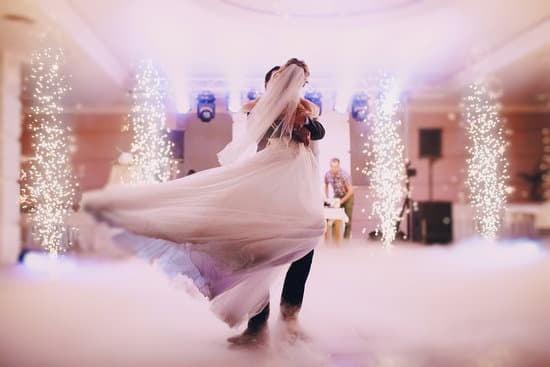Are wedding gifts mandatory? The tradition of giving wedding gifts has been deeply ingrained in many cultures for centuries, serving as a symbol of support and well-wishes for the newlywed couple. However, the expectations surrounding wedding gifts can vary widely, leading to questions about their necessity and significance. In this article, we will explore the history of wedding gifts, the proper etiquette for giving and receiving them, and the social expectations that surround this practice.
The custom of giving wedding gifts dates back to ancient times when guests would present items to help the newlyweds establish their new household. Over time, this tradition has evolved into a way for loved ones to express their joy and support for the couple’s union. With such a rich history behind it, wedding gifting has become an integral part of marriage celebrations in numerous societies around the world.
In today’s society, there are often cultural and social expectations surrounding wedding gifts that can lead to confusion and even stress for those involved in weddings. This article aims to provide insight into the origins and etiquette of wedding gifting while addressing common questions and concerns that arise around this topic.
Whether you are a guest attending a wedding or a newlywed couple navigating gift expectations, understanding the nuances of this tradition is essential for approaching it with thoughtfulness and consideration.
The History of Wedding Gifts
Wedding gifts have been a longstanding tradition in many cultures around the world. The practice of giving gifts to newlyweds dates back centuries and is rooted in the idea of providing support and well wishes to the couple as they begin their life together. In ancient times, these gifts often took the form of practical items that would help the newlyweds establish their new household.
The history of wedding gifts can be traced back to ancient dowries, where the bride’s family would provide goods, money, or property to the groom as a way of ensuring her financial security in marriage. Over time, this practice evolved into more symbolic and sentimental gifts given by both families to the couple to celebrate their union.
In some cultures, such as in parts of Europe, it was also customary for wedding guests to present gifts of money to help the couple start their new life together.
As societies changed and evolved, so did the customs surrounding wedding gifts. Today, while the tradition of giving wedding gifts remains strong, there is now a wider range of gift options available to both givers and recipients. Couples may create registries specifying desired items, or request donations towards experiences such as honeymoons or home renovations. This shift reflects changing social norms and priorities, but also underlines the continued importance placed on expressing goodwill through the act of giving.
| History Aspect | Evolvement Over Time |
|---|---|
| Ancient dowries | Sentimental and symbolic gifts given by both families |
| Giving from Wedding Guests | Wider range of gift options available today |
The Etiquette of Wedding Gifts
Wedding gifts are an essential part of the celebration and play a significant role in the traditions and customs of weddings. When it comes to giving and receiving wedding gifts, there are certain etiquettes that should be followed to ensure that both the giver and receiver feel appreciated and respected. The etiquette of wedding gifts involves not only the act of giving, but also the timing and types of gifts that are considered appropriate.
One important aspect of the etiquette of wedding gifts is the timing of when to give them. Traditionally, wedding gifts should be given before the wedding day, although some guests choose to bring their gift to the wedding or send it shortly after.
It is generally considered proper etiquette to send a gift if you have been invited to a wedding, even if you are unable to attend. This demonstrates your support for the couple during this important milestone in their lives.
In addition to timing, considering the types of gifts that are appropriate is also crucial. Couples typically create a wedding registry, which contains a list of items they would like to receive as gifts.
It is considered good etiquette to choose a gift from the registry if possible, as it ensures that the couple will receive something they truly want and need. However, if you opt for a gift not listed on the registry, make sure it is thoughtful and considerate of the couple’s tastes and needs.
| Aspect | Description |
|---|---|
| Timing | Give wedding gifts before or shortly after the wedding |
| Types of Gifts | Consider choosing from the couple’s registry or selecting a thoughtful alternative |
Do You Have to Give a Wedding Gift?
Weddings are joyous occasions that bring together friends and family to celebrate the union of two individuals. One common question that arises when attending a wedding is whether or not giving a gift is mandatory. While it’s not explicitly required by law, there are societal expectations and traditions that surround the act of giving wedding gifts.
Social Expectations and Traditions
In many cultures, it is customary for guests to give a gift to the newlyweds as a way to congratulate them and provide support as they begin their new life together. This tradition has been passed down through generations and is often seen as an integral part of the wedding experience. While some couples may explicitly state that gifts are not necessary, the majority of weddings still involve the exchange of gifts.
Thoughtful Gestures
Even though there may be social expectations surrounding wedding gifts, it’s important to remember that the gesture is ultimately about showing your support and goodwill towards the couple. The value of the gift is not what matters most; rather, it’s the thought and effort put into selecting or creating a meaningful token of congratulations for the newlyweds.
Navigating Gift-Giving
If you are attending a wedding, it’s advisable to consider giving a gift as a thoughtful gesture, even if it’s something small or handmade. Take into account your relationship with the couple, your own financial situation, and any cultural or religious customs that may impact your decision. Ultimately, while wedding gifts are not legally mandatory, they serve as an expression of love and well-wishes for the couple as they embark on their marital journey.
The Cost of Wedding Gifts
Attending a wedding often comes with financial implications, especially when it comes to giving a gift to the couple. The cost of wedding gifts can vary depending on various factors, including your relationship to the couple, your personal budget, and the expectations within your social circle. It’s important to navigate this issue thoughtfully and considerately to ensure that you can celebrate the special occasion without feeling burdened by financial stress.
Setting a Budget
When attending a wedding, it’s essential to establish a budget for the gift you plan to give. Consider how much you can comfortably afford to spend and be mindful of any additional expenses associated with attending the event, such as travel, accommodation, and attire. Setting a budget will help you manage your finances effectively while still being able to show your support for the couple.
Group Gifting
In many cases, group gifting has become a popular option for those who want to contribute towards a more significant gift for the couple. This allows friends or family members to pool their resources together and purchase an item from the couple’s registry or make a monetary contribution that aligns with their preferences. Group gifting not only lessens the financial burden on individuals but also allows for a more substantial and meaningful gift for the newlyweds.
Creative and Thoughtful Alternatives
If you find yourself constrained by financial limitations, remember that there are alternative options beyond traditional wedding gifts. Offerings such as creating a homemade gift, writing a heartfelt letter, or providing assistance with specific tasks related to the wedding can be just as meaningful. The key is to demonstrate your support and well wishes in ways that are both thoughtful and considerate within your means.
Overall, navigating the cost of wedding gifts requires thoughtful consideration of one’s own financial situation while honoring the importance of celebrating this milestone event in someone’s life. By setting clear boundaries and embracing creative alternatives, individuals can navigate this issue with grace and generosity without succumbing to unnecessary financial strain.
Alternatives to Traditional Wedding Gifts
There are several alternative options to traditional wedding gifts that can be considered, especially for couples who already have established households or simply prefer to receive something different. One popular alternative is contributing to a honeymoon fund. With the rising trend of couples funding their own weddings and honeymoons, a monetary gift towards their dream getaway can be a wonderful and practical way to show support for their future together.
Another creative alternative is making a charitable donation in honor of the couple. This not only reflects the values of the couple but also allows guests to contribute to a meaningful cause in celebration of their love. Many couples choose to support charities that are close to their hearts, and this approach can make a positive impact beyond just the wedding day.
Some couples may also opt for experiential gifts instead of physical items. This could include gifting them with tickets to a show or concert, vouchers for a spa day, or even cooking classes. These types of gifts provide the couple with an experience they can enjoy together and create lasting memories.
Overall, exploring alternative options for giving wedding gifts provides flexibility and allows guests to express their love and support in ways that resonate with the couple’s preferences and values. The key is thoughtful consideration and understanding of what would truly bring joy to the newlyweds as they begin this new chapter in their lives.
Dealing With Gift Expectations
When it comes to weddings, there is often a significant amount of societal pressure surrounding the giving of gifts. Many guests feel obligated to provide a gift, while couples may feel pressured to expect them. However, it’s important to remember that while wedding gifts are a common tradition, they are not mandatory. Here are some key points to consider when navigating the expectations surrounding wedding gifts:
- Communicate openly: Couples should communicate with their guests that their presence at the wedding is what truly matters, regardless of whether or not they choose to give a physical gift.
- Manage expectations: Guests should not feel pressured to give an extravagant gift if they cannot afford it. Couples should also manage their own expectations and appreciate any gift they receive.
- Focus on gratitude: Expressing gratitude for any gift received, no matter how big or small, is essential for maintaining positive relationships with guests.
Ultimately, the most important thing to remember is that weddings are about celebrating love and commitment. While gifts can certainly be a thoughtful gesture, they should never be a source of discomfort or strain on relationships. By approaching gift-giving with understanding and open communication, both couples and their guests can navigate this aspect of wedding culture in a respectful and considerate manner.
Conclusion
In conclusion, the debate over whether wedding gifts are mandatory is a complex and multifaceted issue that encompasses cultural traditions, social expectations, and financial considerations. While some may argue that giving a gift is an essential part of attending a wedding, others believe that it should be a personal choice rather than an obligation. It is important to recognize that different cultures and individuals have varying perspectives on this matter, and there is no one-size-fits-all answer.
When navigating the issue of wedding gifts, it is crucial to approach the situation with thoughtfulness and consideration for both the couple getting married and your own circumstances. Remember that the true spirit of giving a wedding gift is to celebrate the love and commitment of the couple, rather than feeling pressured by societal norms.
If you are unable to afford an extravagant gift, consider alternative options such as contributing to a honeymoon fund or offering your time or skills to help with wedding preparations.
Ultimately, the decision to give a wedding gift should be made with sincerity and goodwill. Whether you choose to follow traditional etiquette or pursue an alternative approach, the most important thing is to convey your best wishes for the couple’s future happiness. By approaching the issue with empathy and understanding, you can navigate the complexities of wedding gift-giving in a respectful and thoughtful manner.
Frequently Asked Questions
Is It OK Not to Give a Wedding Gift?
It is generally considered proper etiquette to give a wedding gift, as it represents your support and well wishes for the newly married couple. However, financial circumstances or other personal reasons may sometimes make it difficult to give a gift.
Do You Have to Get a Gift if You’re in the Wedding?
If you are in the wedding party, such as being a bridesmaid or groomsman, it is customary to give a gift to the couple. Being part of the wedding entourage often entails additional responsibilities and expenses, but giving a gift is still expected as a gesture of appreciation for being included in the celebration.
How Rude Is It to Go to a Wedding Without a Gift?
Attending a wedding without a gift can be seen as rude or thoughtless by some, especially if you have a close relationship with the couple. In some cases, guests may choose to send their gift at a later time due to various reasons such as travel constraints or other logistical issues.
However, attending without any intention of giving a gift may be perceived negatively by the couple or their families.

I have been involved in marriages for over 20 years helping couples and singles understand more about them.





